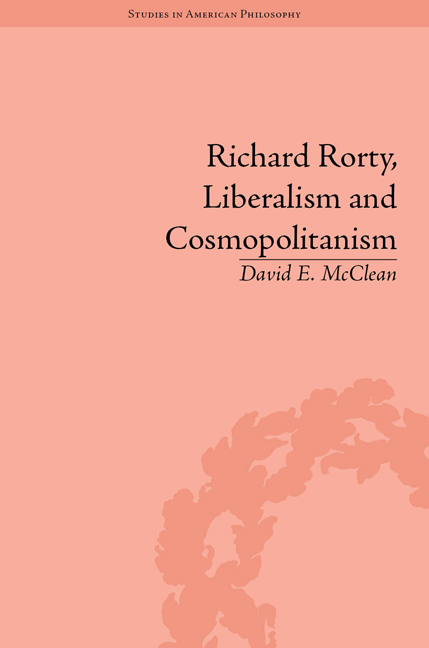Book contents
- Frontmatter
- CONTENTS
- Dedication
- Key to Works by Rorty
- Preface: Rorty's ‘Violence of Direction’
- 1 From Pragmatism to Rortyism
- 2 Alternative Utopias
- 3 Why Rorty Matters
- 4 Rorty on Religion, Race, Culture and Politics
- 5 Rorty and Cosmopolitanism
- Epilogue: Looking Forward to the Year 2096 with Cosmopolitan Hope
- Works Cited
- Notes
- Index
3 - Why Rorty Matters
- Frontmatter
- CONTENTS
- Dedication
- Key to Works by Rorty
- Preface: Rorty's ‘Violence of Direction’
- 1 From Pragmatism to Rortyism
- 2 Alternative Utopias
- 3 Why Rorty Matters
- 4 Rorty on Religion, Race, Culture and Politics
- 5 Rorty and Cosmopolitanism
- Epilogue: Looking Forward to the Year 2096 with Cosmopolitan Hope
- Works Cited
- Notes
- Index
Summary
In the preceding pages I have tried to show what I take to be some of the strengths and weaknesses in Rorty's versions of anti-foundationalism and anti-representationalism (using a minimum of technical jargon). Now I would like to review why it is that I think Rorty matters in the ongoing ‘conversation of mankind.’
In the Preface I quote Rorty as saying: ‘I am a hedgehog who … has really only one idea: the need to get beyond representationalism, and thus into an intellectual world in which human beings are responsible only to each other’. This ‘one idea’, teased-out in his anti-foundationalism and ironism, links with a vision of cosmopolitan hope – of a world in which we are ever mindful of the contingencies of our parochial views, of the various ways that we are or may be engaged in cruelty toward one another, whether in small things (Humbert Humbert in Nabokov's Lolita, as discussed in CIS) or in large things (O'Brien in Orwell's 1984, also discussed in CIS), and in which a desire to avoid such cruelty is a critical moral preoccupation. This discussion of ‘contingency’ has occupied philosophers in modernity at least since Nietzsche, but that does not mean that it has sufficiently permeated the public squares to effect the types of transformative changes that are required to bring about the types of moral sensibilities that can help us attenuate or enervate our nativistic and tribalistic tendencies or our moral and metaphysical absolutisms which continue to lead to deadly clashes and encounters.
- Type
- Chapter
- Information
- Richard Rorty, Liberalism and Cosmopolitanism , pp. 91 - 110Publisher: Pickering & ChattoFirst published in: 2014



